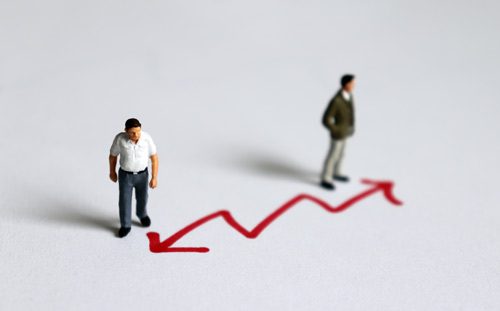
Understanding the Difference Between Languishing & Flourishing
The concept of languishing as a state of mental being was coined by sociologist Corey Keyes in 2002. His research showed him that many people who weren’t clinically depressed were still facing significant mental health challenges. He introduced the concept of mental health as a continuum, with flourishing representing the desired state of being.
Flourishing
Someone who is flourishing feels as if all aspects of their life are in balance. They may describe themselves as feeling:
- Calm
- Content
- Energetic
- Full of purpose
- Ambitious
According to Keyes, about 17.2% of adults can be considered flourishing. They are mentally healthy and feel confident in their ability to handle the day-to-day challenges of life. They understand their personal strengths and are motivated to work towards specific goals.
Languishing
In comparison, someone who is languishing may describe themselves as feeling:
- Restless
- Unsettled
- Tired
- Empty
- Apathetic
Psychologists believe the ongoing uncertainty surrounding the COVID-19 pandemic has led to a sharp increase in languishing. Coping with the threat of illness as well as the challenges posed by remote schooling, childcare shortages, working from home, and sudden event cancellations is difficult even when a person isn’t already dealing with the effects of a substance use disorder.
Keyes found that 12.1% of adults are languishing while 14.1% can be considered clinically depressed. While those who are languishing aren’t considered mentally ill, they show few signs of mental health. They feel as though they have minimal control over their lives and struggle to find the motivation to change their circumstances.
Why Languishing Is a Problem
While we all have the occasional bad day, persistent languishing is a problem because it makes it difficult to continue a wellness-focused lifestyle. Someone who is languishing may eat too much junk food, forgo a regular exercise routine, skimp on sleep, and withdraw from relationships with others. This creates a situation where poor lifestyle habits continue to reinforce poor mental health—setting the stage for a relapse.
How to Break the Cycle
If you think you might be languishing, the good news is that there are many steps you can take to improve your mental health.
- Write in your journal. Getting your thoughts down on paper can help you look at a situation more objectively. Journaling is also a great way to recognize any personal triggers that tend to lead to languishing.
- Lean into your routine. The same routine you relied on to fight cravings in the earliest stages of your recovery can help you keep your mental health in check when you’re struggling. Setting aside specific time for meal prep, exercise, sleep, and socializing will keep feelings of languishing from turning into a bigger threat.
- Spark a passion. Diving into a new hobby, DIY project, or volunteer opportunity can give you a sense of purpose. An activity that involves your friends and family is even better since maintaining healthy relationships with others is a vital part of your overall mental health.
- Practice mindfulness. A type of meditation where you focus on being fully aware of what you’re feeling in the moment without interpretation or judgment, mindfulness can help you realize that feelings of languishing are only temporary.
- Talk to a therapist. Languishing might not seem as severe as major depressive disorder, but the two conditions have a lot in common. An experienced therapist can help you create a plan to get back to feeling more like your old self.
We’re Here to Help
At Mountain Laurel Recovery Center, our goal is to allow the men and women we serve to break free from the burden of substance abuse and develop the resources they need to flourish. Our Pennsylvania residential addiction treatment program is designed to take a holistic approach to recovery—healing the mind, body, and spirit so you can make the most of each day.
